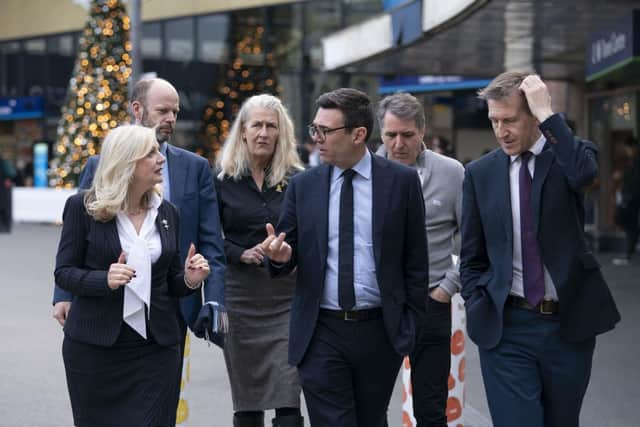Funding handed to Northern transport experts for major rail project reduced by £75m
Transport for the North (TfN) had been drawing up plans for the high-speed rail project and preparing a business case. It received £75m of Government funding in 2021/22 to support that work.
But the Government was accused of a “power grab” in November, when it refused to take on TfN’s plans for the rail line, took charge of the project and gave TfN an advisory “co-sponsorship” role.
Advertisement
Hide AdAdvertisement
Hide AdThe organisation applied for £104.5m of Government funding to support the project over the next financial year, but will be given just £1.5m to provide “analytical support”.


TfN, which is run by Northern leaders and employs about 120 people in Leeds and Manchester, said it had spent around 80 per cent of its budget on planning for Northern Powerhouse Rail and been “shaped” to support it.
It had also applied for £10m of core funding – the amount it received in 2020/21 – but will only receive £6.5m for the next year.
In a report, the organisation said funding reductions “will have significant implications” and its financial challenges will “result in redundancies”.
Advertisement
Hide AdAdvertisement
Hide Ad“TfN is communicating with its staff, employee forum and trade union representatives to keep them informed of progress in relation to our core funding and the NPR transition,” it added.
“Indications are that staff morale is low, and that the ongoing uncertainties are having an increasingly disruptive impact on the organisation.”
North of Tyne mayor Jamie Driscoll has previously raised concerns about the reduction in core funding, claiming it could affect the organisation’s ability to act as a “united voice for the North”, while Greater Manchester mayor Andy Burnham said the cut “is going to fundamentally change the capability of the organisation”.
When the Government published its long-awaited Integrated Rail Plan in November, it promised £17.2bn for a 40-mile high-speed line between Warrington, Manchester and Marsden in Yorkshire.
Advertisement
Hide AdAdvertisement
Hide AdIt also opted to upgrade and electrify the existing Transpennine Main Line as part of a £5.4bn project, but refused to build new lines between Leeds and Liverpool, which TfN had been calling for.
The Government, which was slated in the North after publication of the IRP, has said building the Northern Powerhose Rail line that was suggested by TfN would cost an extra £18bn, open in 2043 and shave just four minutes off the journey between Manchester and Leeds.
But it also states that under the new plans, some Northern Powerhouse Rail trains will begin running this decade, and journeys between Manchester and Leeds will be 22 minutes faster.
TfN is still urging the Government to build its preferred option for the high-speed rail line and revert to the original plans for HS2, after the project was scaled back.
